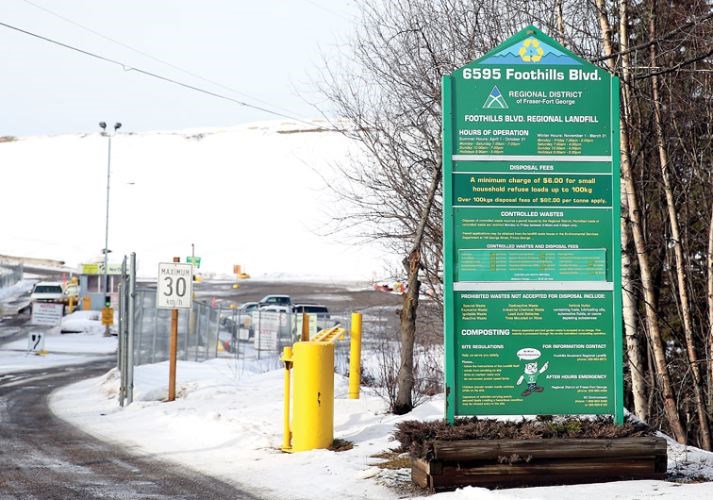The Fraser-Fort George Regional District will be taking in old fridges, freezers and any other major appliances containing ozone-depleting substances at no charge starting in January.
It means the current charge of $22.50 per unit will be waived with the Major Appliance Recycling Roundtable, an agency operating on behalf producers, covering the handling costs under a one-year pilot program.
FFGRD waste diversion program leader Laura Zapotichny said over 1,500 units were accepted at the Foothills landfill last year and there was an "overwhelming response" when the items were accepted for free during a roundup in conjunction with the Junk in the Trunk event in September.
"Based on what happened a couple short months ago with one round up event, I'm really hopeful that people will come and bring us back these appliances now at no charge because everything is being taken care of by this stewardship program."
The program will apply to much more than fridges and freezers. Zapotichny recited off an extensive list of items containing refrigerants and other gases harmful to the planet's ozone layer: wine coolers, air conditioners, dehumidifiers, washers, dryers, range hoods, ranges, built-in ovens, surface cooking units, dishwashers, food waste disposal units, trash compacters.
"The regional district has accepted most of those products already for no charge as most of our facilities have a metal-recycling bin," she added. "The bonus in signing on with MARR is that now they cover the cost of recovering the ozone-depleting substance - the freon - out of the chiller unit in it."
The FFGRD will launch an information campaign through its website and local media when the program starts up. "We're trying to hit all mediums so that people are aware," Zapotichny said.
Recycling and Environmental Action Planning Society executive director Terri McClymont welcomed the move. She also noted the strong response at Junk in the Trunk and added she hopes it will put a dent in illegal dumping.
"There's definitely a need out there so that's great that they're dropping the fee," she said.
It wasn't all good news when FFGRD directors approved participation in the program during their monthly meeting last week. They also voted for an across-the-board 5.9-per-cent increase to the fees it does charge for handling various types of solid waste.
The hike, which will also come into effect at the start of 2019, means the basic weight-based tipping fee will add up to $90 per tonne, an increase of $5 over the current rate, with higher fees applied to more difficult-to-handle refuse.
The per-tonne rate for condemned foods, creosote treated wood, dead animals and off-road truck tires will be $164.90, while for bulky waste, contaminated soils and concrete, it will be $107.20. For camp waste, food processing waste, gypsum or wallboard, pumpings and wood ash from industrial operations, it will be $90. Asbestos and so-called "international waste" will cost $330.35 per tonne.
And the FFGRD will charge $164.90 per unit for vehicle hulks and $11.90 per medium truck tire.
However, the cost of dropping off "small loads" of up to 100 kilograms of household garbage will remain at $6, which McClymont said is a good deal.
"That $6 covers a lot," she said. "It's the people handling it once it gets there, it's the transporting it up to the landfill, it's the machinery that puts it into the landfill and compacts it, it's the renting of the space of the landfill, so that $6 is pretty minimal to drop off a truckload of garbage."



